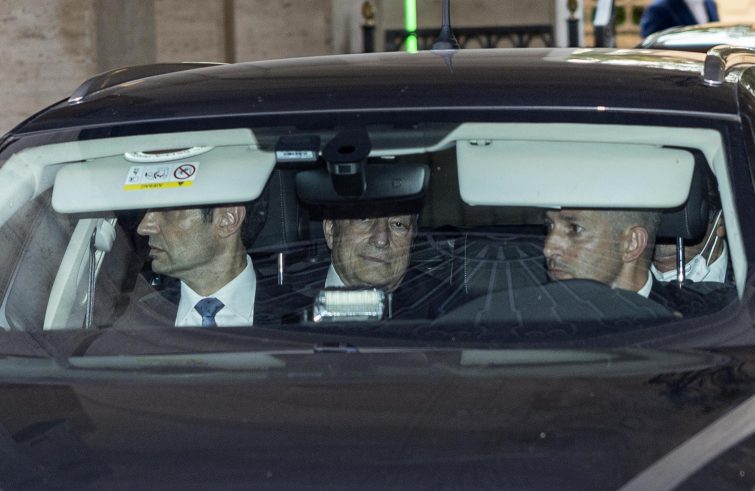
Next Wednesday will be decisive. In fact, next July 20 Mario Draghi will appear before Parliament, and on that occasion we will know the exact destiny of the incumbent executive. The final outcome of the severe political crisis afflicting the Italian government will be thus decided in parliament, ‘parliamentarised’ as known in institutional media jargon. The unfolding scenario is the obvious culmination of a period of mounting tensions within the ruling majority coalition, within its constituent parties, and between some of the latter and the Prime Minister. Let us try to review the last, frantic stages that ultimately precipitated the crisis on Thursday, July 14.
In the early afternoon, the Senate held a vote of confidence on the conversion into law of a cost-of-living aid package incorporating provisions to tackle the ongoing energy emergency and its impact on the economy. The government won the go-ahead with 172 ayes and 39 noes, but Senators from the M5S party – as previously anticipated – did not participate in the vote owing to disagreement on various items of the legislative decree, notably the construction of a waste-to-energy plant in Rome. A few days earlier the regulation had allowed the House to distinguish between a vote of confidence – which M5S parliamentarians had declared to be in favour of – and a negative vote on the content of the bill. However, the Upper House regulation envisages one single voting procedure, and thus dissent on the content of the measure meant not participating in the confidence vote on the Government.
Thereupon Draghi had a private meeting with President Sergio Mattarella at the Quirinal Palace. The Council of Ministers scheduled for 15.30 was postponed. His conversation with Sergio Mattarella lasted an hour and the Prime Minister left the Quirinal without making a statement. Whilst it is very likely that the President of the Republic tried to reach a positive outcome to the situation, rumours started to circulate claiming that a bitter confrontation had taken place with Draghi. So much so that later in the evening a note from the Quirinal press office clarified that on the contrary the meeting was marked by “consensus view.”
The Council of Ministers was reconvened for 6.15pm. During the meeting, the Prime Minister announced to Cabinet members that he would be seeing Mattarella to offer his resignation and explained the reasoning behind his decision. “Today’s vote in Parliament – Draghi said to his Cabinet ministers – is politically significant. The majority that had backed the national unity government since its inception is no more. The confidence pact underlying government action has ceased to exist.”
“Since my swearing-in speech in Parliament,” the Prime Minister added, “I consistently maintained that the executive would move forward as long as the government program approved by the political groups was clearly achievable. That unity proved crucial for meeting the challenges of the past few months. Those preconditions are no longer in place today.”
Right after the Cabinet meeting, Draghi headed to the Quirinal presidential palace to tender his resignation. The outcome of that meeting can be found in the Quirinal’s communiqué: “The President of the Republic has not accepted the resignation and has asked the Prime Minister to appear in Parliament to make a statement, with a view to allowing an assessment of the situation determined by the outcome of today’s sitting in the Senate of the Italian Republic.” Pending parliamentary verification, however, the Government retains its full functions, in fact Draghi will attend an intergovernmental summit in Algeria on Monday and Tuesday. This means that there will be time until Wednesday, at least, to seek a solution in the greater interest of the Country.












